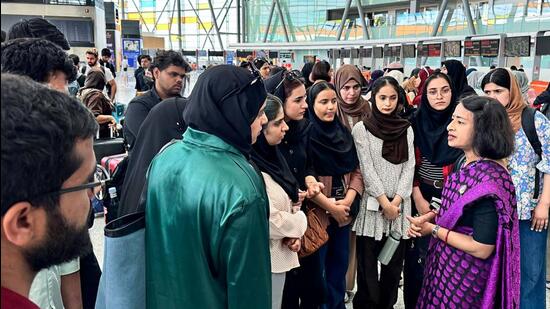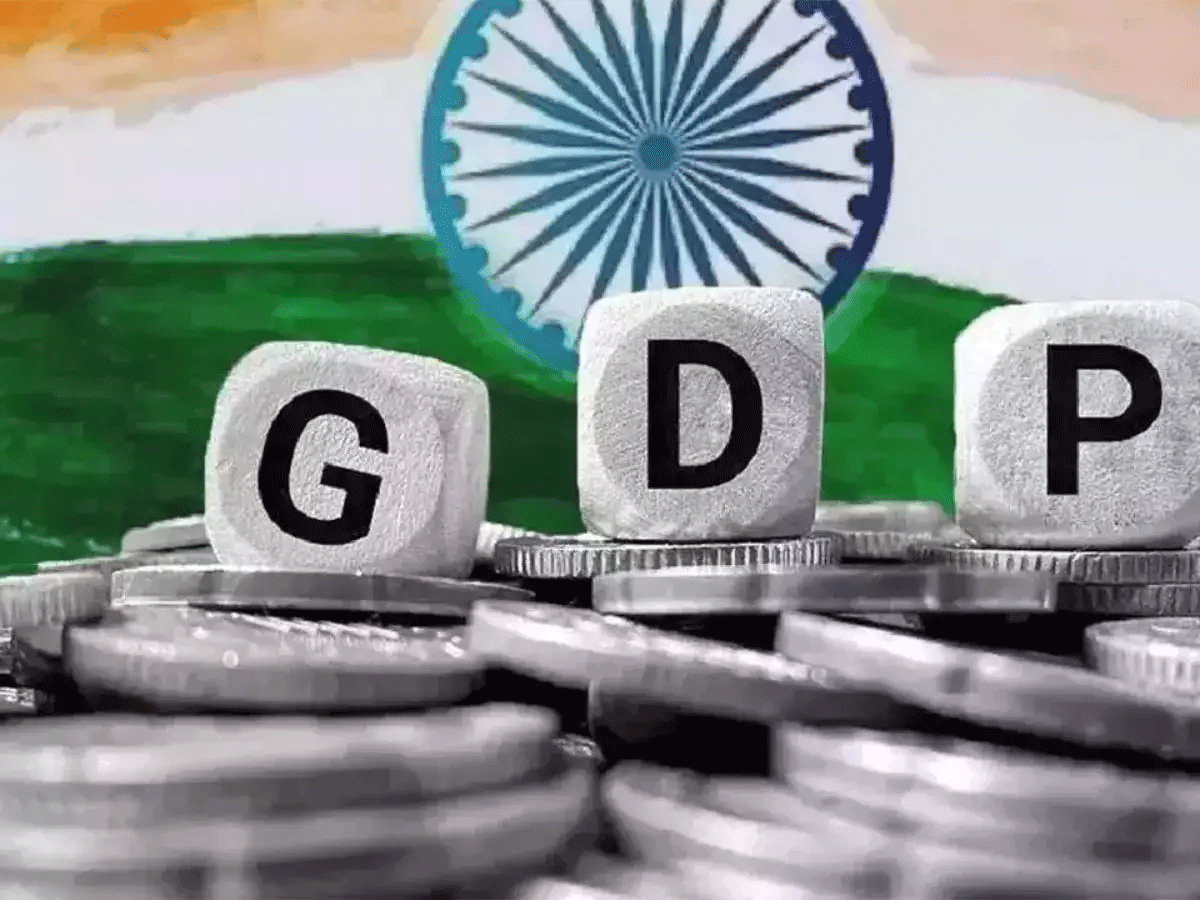- Courses
- GS Full Course 1 Year
- GS Full Course 2 Year
- GS Full Course 3 Year
- GS Full Course Till Selection
- Answer Alpha: Mains 2025 Mentorship
- MEP (Mains Enrichment Programme) Data, Facts
- Essay Target – 150+ Marks
- Online Program
- GS Recorded Course
- Polity
- Geography
- Economy
- Ancient, Medieval and Art & Culture AMAC
- Modern India, Post Independence & World History
- Environment
- Governance
- Science & Technology
- International Relations and Internal Security
- Disaster Management
- Ethics
- NCERT Current Affairs
- Indian Society and Social Issue
- NCERT- Science and Technology
- NCERT - Geography
- NCERT - Ancient History
- NCERT- World History
- NCERT Modern History
- CSAT
- 5 LAYERED ARJUNA Mentorship
- Public Administration Optional
- ABOUT US
- OUR TOPPERS
- TEST SERIES
- FREE STUDY MATERIAL
- VIDEOS
- CONTACT US
THE PUBLIC EXAMINATIONS (PREVENTION OF UNFAIR MEANS) BILL, 2024
THE PUBLIC EXAMINATIONS (PREVENTION OF UNFAIR MEANS) BILL, 2024
09-02-2024
- In February 2024, The Public Examinations (Prevention of Unfair Means) Bill, 2024, was introduced in the Lok Sabha.
- The bill seeks to combat the use of "Unfair Means" with the goal of enhancing transparency, fairness, and trust in the Public Examinations System.
Need for Such a Bill
- Occurrences and Impact of Exam Paper Leaks:
- Widespread Issue: Recent years have seen a significant rise in question paper leaks during recruitment exams in various states, like Rajasthan, Madhya Pradesh etc.
- Over the past five years, there have been at least 48 reported cases of paper leaks across 16 states, affecting government job recruitment processes.
- Impact on Applicants: These leaks have impacted approximately 1.51 crore candidates competing for around 1.2 lakh positions.
- Widespread Issue: Recent years have seen a significant rise in question paper leaks during recruitment exams in various states, like Rajasthan, Madhya Pradesh etc.
- Examination Delays Caused by Malpractices:
- Consequences of Unfair Practices: Dishonest behaviors in public examinations result in postponements and cancellations, negatively affecting the future opportunities of millions of young individuals.
- Lack of Targeted Legislation: Currently, there isn't a dedicated legal framework specifically addressing the use of unfair means or related offenses.
- Need for Robust Measures: It's essential to pinpoint and decisively tackle factors exploiting the weaknesses in the examination system via a thorough national law.
- To Enhance Transparency:
- Bill's Purpose: To enhance transparency, fairness, and trust within public examination systems, ensuring that the hard work and honesty of young individuals are justly recognized and their futures are secured.
- Deterrence Focus: The bill targets the deterrence of individuals, organized groups, or institutions engaging in unfair practices, which negatively affect the integrity of public examination systems for financial benefits or other improper advantages.
Key Provisions of the Bill?
-
Defines Public Examination:
- Definition of Public Examination: Section 2(k) specifies that a Public Examination refers to any test administered by a "public examination authority" identified in the Bill's Schedule or any authority designated by the Central Government.
- Recognized Authorities: The Schedule acknowledges five main public examination authorities:
- Union Public Service Commission (UPSC)
- Staff Selection Commission (SSC)
- Railway Recruitment Boards (RRBs)
- Institute of Banking Personnel Selection (IBPS)
- National Testing Agency (NTA), which oversees exams like JEE (Main), NEET-UG, UGC-NET, and CUET.
- Extended Scope: Additionally, all "Ministries or Departments of the Central Government and their attached and subordinate offices for staff recruitment" fall within the ambit of this new legislation.
- Provision for Expansion: The Central Government retains the authority to include new bodies in the Schedule by issuing notifications as necessary.
-
Punishments:
- Offense Characteristics (Section 9):
- All offenses under the Bill are classified as cognizable, non-bailable, and non-compoundable.
- Cognizable Offenses:
- Police are mandated to investigate these offenses without requiring authorization from the Magistrate.
- Non-compoundable Offenses:
- These offenses prohibit the withdrawal of a case by the complainant after a settlement is reached, necessitating a trial.
- Arrest and Bail Conditions:
- Arrests can be executed without a warrant, and the decision to grant bail is at the discretion of a magistrate, not a guaranteed right.
- Penalties for Unfair Practices:
- Individuals involved in unfair means face imprisonment ranging from three to five years, with possible fines up to Rs 10 lakh.
- Failure to pay the fine could lead to additional imprisonment as outlined in the Bharatiya Nyay Sanhita, 2023.
- Consequences for Service Providers:
- Service providers contracted by public examination authorities and found engaging in illegal activities may be fined up to Rs 1 crore. Additionally, the cost proportional to the examination may be reclaimed from them.
- Offense Characteristics (Section 9):
-
Defines Unfair Means:
- Scope of Unfair Means (Section 3):
- This section identifies at least 15 actions deemed as engaging in unfair practices during public examinations, primarily for financial benefits or wrongful advantages.
- Specific Prohibited Actions:
- Unauthorized leakage of question papers or answer keys, in full or part.
- Illicit possession of question papers or Optical Mark Recognition (OMR) response sheets.
- Unauthorized Assistance:
- Providing solutions to examination questions by any unauthorized individual.
- Document Tampering:
- Altering documents crucial for candidate shortlisting or determining final merit or rank.
- Technological Misconduct:
- Interfering with computer networks or systems.
- Deceptive Practices:
- Creating fake websites and issuing counterfeit admit cards or offer letters for the purpose of deception or financial gain.
- Scope of Unfair Means (Section 3):
-
Investigation and Enforcement:
- The bill stipulates that only officers holding a rank of Deputy Superintendent of Police or Assistant Commissioner of Police and above are authorized to conduct investigations into offenses outlined in the proposed legislation.
-
Model Draft for States:
- The bill also serves as a model draft for states to adopt at their discretion, with the aim of assisting states in preventing criminal elements from disrupting the conduct of their state-level public examinations.
-
High Level National Technical Committee:
- Establishment of a National Technical Committee: A high-level national technical committee on public examinations will be formed.
- Digital Security Protocols: The committee's main objective will be to create protocols for securing digital platforms and to develop strategies for establishing robust IT security systems.
- National Standards Development: It will also work on setting national standards and service levels for IT and physical infrastructures, aimed at enhancing the efficiency and reliability of examination processes.
Concerns regarding the Bill?
-
State Government's discretion:
- The bill is designed to act as a template for states, encouraging them to adopt similar measures. Given the autonomy allowed to state governments, there may be differences in how the law is applied across various states.
- Such variability could potentially diminish the law's overall capability to deter unfair practices in public examinations.
- The bill is designed to act as a template for states, encouraging them to adopt similar measures. Given the autonomy allowed to state governments, there may be differences in how the law is applied across various states.
-
Vulnerabilities in Penalties:
- Potential for Exploitation: The bill's stipulations, including penalties for violations, might have gaps that allow for circumvention of legal consequences.
- Deterrence Effectiveness: Specifically, if the fines levied on service providers do not match the profits gained through unfair practices, these penalties may not effectively discourage such behavior.
-
Ambiguity Regarding the National Technical Committee:
- Proposal for Committee Creation: The bill suggests establishing a High-Level National Technical Committee on Public Examinations.
- Uncertainty in Committee Details: However, specifics about the committee's makeup, member qualifications, and its exact responsibilities remain undefined.
- Expertise and Impartiality Concerns: The absence of explicit criteria for committee composition and member qualifications raises questions about the expertise and neutrality needed for developing secure IT systems and setting national examination standards.
-
Potential for Legal Challenges:
- Potential Legal Obstacles: The bill's stipulations concerning offenses being cognizable, non-bailable, and non-compoundable might encounter legal scrutiny.
- Proportionality and Fairness Questions: Discussions may arise about the appropriateness of these strict regulations relative to the seriousness of the offenses and their compatibility with fundamental justice principles.



